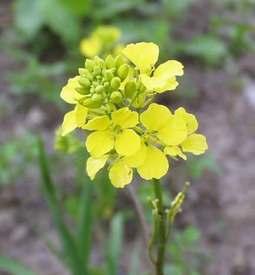Vegetarians and protein

ellielittlewood20
Posts: 19 Member
I'm a veggie (I don't eat fish either) and am struggling to get to the protein "quota" MFP recommends. Anyone else find this a problem or have any helpful tips?
1
Replies
-
I'm an old guy now, and totally omnivorous, but thru my 20s/early 30s, I was a vegan (no animal whatsoever). In the old days, the go-to source for learning protein content of plant foods and effective combinations to get complete proteins was "Diet for a Small Planet." This book is probably ancient now, probably there's something more current. Trick is, your dietary needs are for "amino acids" ("protein" is typically broken down by digestion) which are then uptaken into your cells and made into the proteins you need. Animal sources are complete, plant sources are not (except, i think, soy); you need the "8 essential amino acids" in your diet and you can combine food sources to get a complete spectrum. Brown rice and beans, for instance, is a good combo. You may need to use the "recipe builder" portion of MFP to get the correct numbers set up for things you're probably making from scratch. Hope this is a good start for you.2
-
Do you eat dairy? Cottage cheese is super high in protein.1
-
Beans yo. Textured soy "meats". Oats are okayish.1
-
-
Tofu bro. Or just add a protein smoothie as a snack. Nbd.1
-
Tofu, seitan, tvp. I use a pea protein powder.1
-
I add pea protein powder, ground chia seeds, and Greek yogurt to my smoothies. Also eat almond butter cause my fat % is often low as well.1
-
Tofu, firm tofu for baking, sautee ing and soft tofu for blending w smoothies, beans, and lots of nuts.
Pea protein powder, hemp or soy protein powder.0 -
Nuts, lentils, brown rice, quinoa, beans0
-
If you eat eggs that's one source. I like lentils and black beans. 1 cup of lentils = 3 eggs in calories and protein. I also add fortified nutritional yeast to some things. Just make sure to mix up what you eat to get a complete protein. The key is you don't have to eat a complete protein every meal. For example, one meal you can have rice, the next you can have beans. As long as it equals what you need through out the day.0
-
i use veggie elite protein powder-- my favorite flavor is chocolate mocha, but cinnamon bun is good, too. you can find it online if not in a health food store. you can have it with whatever kinda milk you want! if it's unsweetened almond milk, i add a little stevia to it. it tastes like protein powder still, but i find it waaay less chalky than other stuff, and it's vegan!0
-
Freerange eggs from grassfed chickens... 6g of protein per egg. Also I have Chia Seeds, Spirulina (3g per tsp), sometimes quinoa but its only 14% proteins and has 69% carbs. I am supplementing with either Pea Protein powder or Whey Protein Powder (16-18g of protein per serving). I am still researching on the amount of protein I should be eating though. Some sources suggest 0.8g per kg of body weight or 1g per kg. I am generally active so am thinking it should be more. I make a porridge from oats and chia seeds, flaxseeds, maca powder and it has 16g of protein. It is hard work making the protein numbers but you can do it!0
-
Chickpeas are amazing. So many great recipes out there. Also, red beans, black beans, beans in general lol0
-
Vegetarian (ovo-lacto) for 42 years - yep, since 1974. I was striving for .6-.8g of protein per pound of goal weight, while losing, and usually managed to hit it. Now, in maintenance (at 120 pounds), I try for a minimum of 100g and usually substantially exceed it. Personally, I don't care for protein powder, protein bars, or fake meats, so I almost never eat them - nothing against them philosophically, I just don't find them tasty or satisfying.
I'm not going to suggest a list of foods here (Greek yogurt, beans, yadda-yadda-yadda).
What I will suggest is a resource, and an approach (or two ).
).
The resource is an MFP forum thread that links to a spreadsheet. The spreadsheet is a long list of foods, ranked by their protein/calorie efficiency - basically, the most protein for the lowest calorie "cost". The top of the list has a lot of non-veg foods, of course, but if you scroll down, you'll find many vegetarian foods. Find ones you like, and eat more of those.
Carbs and Fats are cheap. Here's a Guide to getting your PROTEIN's worth. Fiber also...
The approach is to avoid "thinking like a meat eater". It's great, of course, to have some food in each meal that has a big bunch of protein in it, plus some non-protein sides . . . that's what meat-eaters do. Instead, I suggest thinking about how to also get smaller amounts of protein from the other things you eat, moving the focus away from that "one big protein" idea.
When you eat veggies, choose veggies that have a little bit of protein, rather than none. There are even some fruits with a bit of protein! If you have salad, use a dressing that adds some protein (Greek yogurt base, or something like tahini, for example, rather than an oil-based dressing). If the salad needs crunch, add a few seeds or nuts, not croutons. If you eat bread or pasta, find some that have relatively more protein. Thicken a "creamy" soup with pureed white beans instead of something starchy or fatty. If you're having a snack, consider crunchy chickpeas, dry-roasted soybeans, Indian puppodums, a bit of protein-efficient cheese, or a reasonable portion of nuts. And so forth.
While I was starting to lose weight, I'd go through my food diary every once in awhile, and think about whether the foods I was eating gave me the best nutrition (including protein), tastiness, and satiation for their calorie "cost". Then I'd replace/reduce foods that didn't measure up with foods that I found tasty, but that better met my goals. Over time, my eating got healthier & more satisfying.
For me, the more I use simple foods that I cook myself, the easier it is to hit my protein (and other) goals. This doesn't have to be fancy cooking/eating. What I've found is that more "finished" packaged foods (like frozen or boxed meals, at the extreme) have substantially more calories per gram of protein than simpler foods.
YMMV, but that's my view.1 -
Lentils. One cup has the protein of 3 eggs. Just cook until mushy because we lack an enzyme to digest the cellulose lentil seed coat,1
-
-
I was gonna write but basically its all in that chart above
 ) 0
) 0 -
You fit in your protein by reducing fruits and some carbs in order to fit in beans, tofu, eggs, tofu, dairy, leafy greens, broccoli, and yellow squash and other veggies (veggies have some protein whereas fruit has almost none).0
This discussion has been closed.
Categories
- All Categories
- 1.4M Health, Wellness and Goals
- 398.2K Introduce Yourself
- 44.7K Getting Started
- 261K Health and Weight Loss
- 176.4K Food and Nutrition
- 47.7K Recipes
- 233K Fitness and Exercise
- 462 Sleep, Mindfulness and Overall Wellness
- 6.5K Goal: Maintaining Weight
- 8.7K Goal: Gaining Weight and Body Building
- 153.5K Motivation and Support
- 8.4K Challenges
- 1.4K Debate Club
- 96.5K Chit-Chat
- 2.6K Fun and Games
- 4.8K MyFitnessPal Information
- 12 News and Announcements
- 21 MyFitnessPal Academy
- 1.6K Feature Suggestions and Ideas
- 3.2K MyFitnessPal Tech Support Questions

















